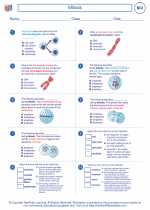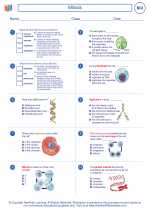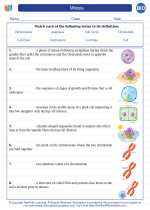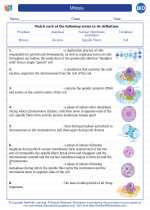Predation
Predation is a biological interaction in which one organism, the predator, hunts, kills, and consumes another organism, the prey. This interaction is a key component of ecological relationships and has important effects on the populations and behavior of both predators and prey.
Key Concepts
- Predator: An organism that hunts, kills, and consumes other organisms.
- Prey: An organism that is hunted, killed, and consumed by predators.
- Predator-Prey Relationship: The dynamic interaction between predators and their prey, which often involves co-evolution and population dynamics.
- Adaptations: Both predators and prey have evolved various adaptations to increase their chances of survival, such as camouflage, speed, and defensive structures.
- Impact on Ecosystems: Predation can influence the structure and function of ecosystems by regulating population sizes and shaping community dynamics.
Study Guide
1. Predator-Prey Dynamics
Describe the relationship between predators and their prey. How does this interaction shape the behavior and characteristics of both predators and prey?
2. Adaptations for Predation
Discuss the various adaptations that predators and prey have evolved to enhance their survival. Provide examples of specific adaptations and their functions.
3. Ecological Impact
Explain how predation influences the structure and function of ecosystems. Discuss the role of predators in regulating population sizes and maintaining ecological balance.
4. Case Studies
Research and analyze specific examples of predator-prey interactions in different ecosystems. Discuss the unique characteristics of these interactions and their ecological significance.
5. Human Impacts
Explore the effects of human activities on predator-prey relationships. How have human interventions, such as hunting and habitat destruction, affected predator and prey populations?
Conclusion
Predation is a fundamental ecological process that shapes the dynamics of natural ecosystems. Understanding the intricacies of predator-prey interactions is essential for comprehending the complexity of biological communities and the delicate balance of nature.
[Predation] Related Worksheets and Study Guides:
.◂Biology Worksheets and Study Guides High School. Mitosis

 Worksheet/Answer key
Worksheet/Answer key
 Vocabulary/Answer key
Vocabulary/Answer key
 Vocabulary/Answer key
Vocabulary/Answer key
 Vocabulary/Answer key
Vocabulary/Answer key
